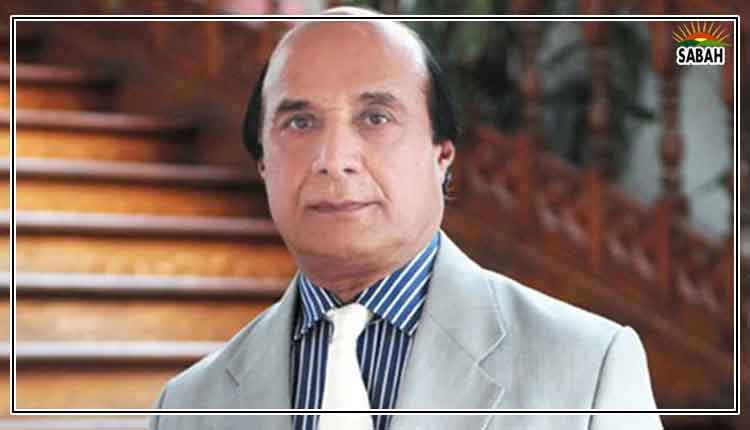Sardar Latif Khan Khosa formally announces to join PTI
LAHORE, Dec 17 (SABAH): Pakistan People’s Party (PPP) disgruntled leader and former governor Punjab Sardar Muhammad Latif Khan Khosa on Sunday said he was joining the Pakistan Tehreek-e-Insaf (PTI) “on the wish” of incarcerated PTI founder Imran Khan.
“I have decided this only in the interest of the country and democracy,” he said in a statement adding that he has decided to raise his voice vigorously for the truth.
Later on, Sarsar Latif Khosa announced his decision at a press conference in Lahore, wherein the seasoned politician hoped that the politics of hatred would end. He said the country’s Constitution is a civil agreement that has the characteristics of all welfare states.
Latif Khosa said the state and the country suffered whenever the Constitution was deviated from. “The motherland can become prosperous, if we follow the Constitution. The Constitution has a solution for everything if it is implemented in its true spirit,” he said.
He said the idea of Pakistan was given by a lawyer, Barrister Muhammad Iqbal, and it was completed by Barrister Muhammd Ali Jinnah.
Latif Khosa said that he had taken the step with the hope of taking the country towards a “beautiful” future. “The world says that people do press conferences to leave [the party] and you are doing a press conference to join,” he laughed, referring to the manner in which several PTI leaders had left the party in the aftermath of the May 9 violence.
“I am doing this deliberately. If rendering services for your mother country makes you a lunatic, then yes I am a lunatic,” he said. He further said that one should not be fearful to speak the truth, adding that life, death, honour, respect and sustenance were all in God’s hands.
“Why should anyone be scared? These are our institutions. This is our army. Their limits are defined within the Constitution. They are paid through the taxes given by the Pakistani people — be it army generals, judges or the bureaucracy, their real owners are the people who pay taxes,” he said.
He called on institutions to work within their constitutional limits, adding that problems arose when one decided to interfered in matters beyond its mandate.












